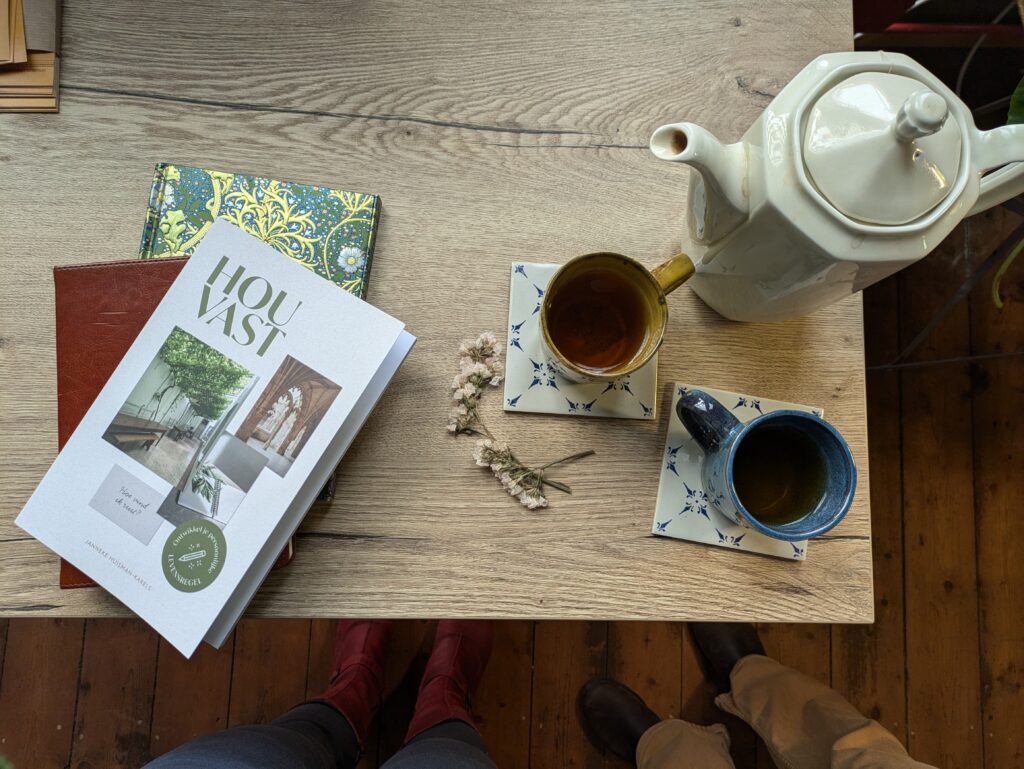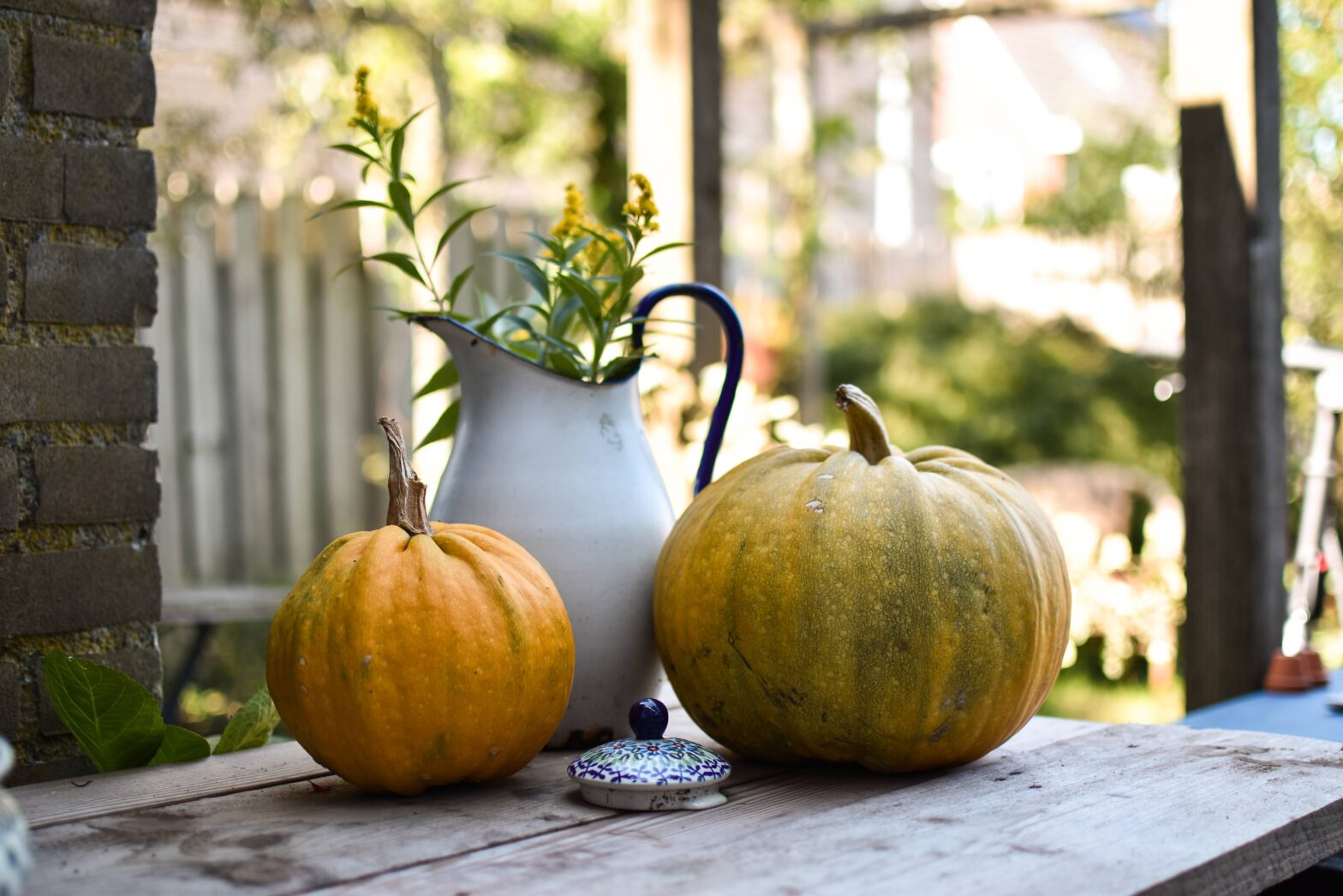HOLDING FAST BY LETTING GO
The less longing, the more presence
The less we bang on the door, the more it opens for us.
The less we demand, the more we see the beauty of the gift.
The less we expect, the more the joy of the surprise
The more selfless, the more self.
Glamorous need shuts us off from the needed.
“It is our clinging which is our death.”
The less we cling, the more we embrace
The less we fear, the more we love
All joy reminds us.
It is not a possession, but leads us onwards.
Our love is a taste of things to come.
Go lightly
Go simply
Feel the beauty of the balance
A breathing out
A breathing in
A shared breath
A letting go, so that we may be held forever.
Richard Carter: The City Is My Monastery
When you have a garden, the earth becomes your friend. All my prayers and struggles found a place in the garden. Now the gardening season has ended in our part of the world. We are invited to return inwardly again. The leaves have been letting go, and we are allowed to do so too.
Outside in the cities, villages and forests, millions of leaves have been teaching us to let go. They flutter from a great height over houses, canals, barns and gardens in the freedom and confusion of the air, after which they land softly, reuniting with those who had gone before them.
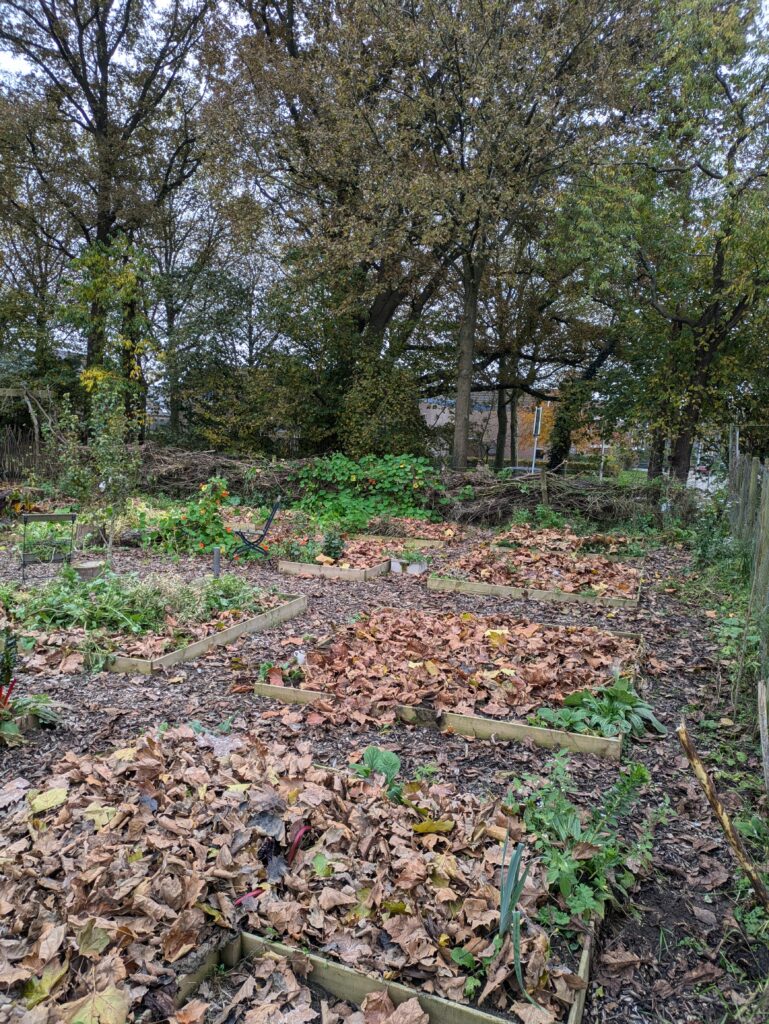
The dog ears of my existence are pulled smooth around the end of November. In the garage, we check the bike lights, we may need to change the car tires; in the house, a light bulb needs replacing. The heating is turned back on. Outside, the light dims, and inside, the candle is lit.
On the table lies a dog-eared agenda that has become more and more worn over this year (if you, like me, still have an old-fashioned paper agenda). Sloppily written notes are placed next to valuable meetings and “Must-Do” lists. I look back on the past year and look ahead to what I still want to finish this year and what I can take with me to the next year.
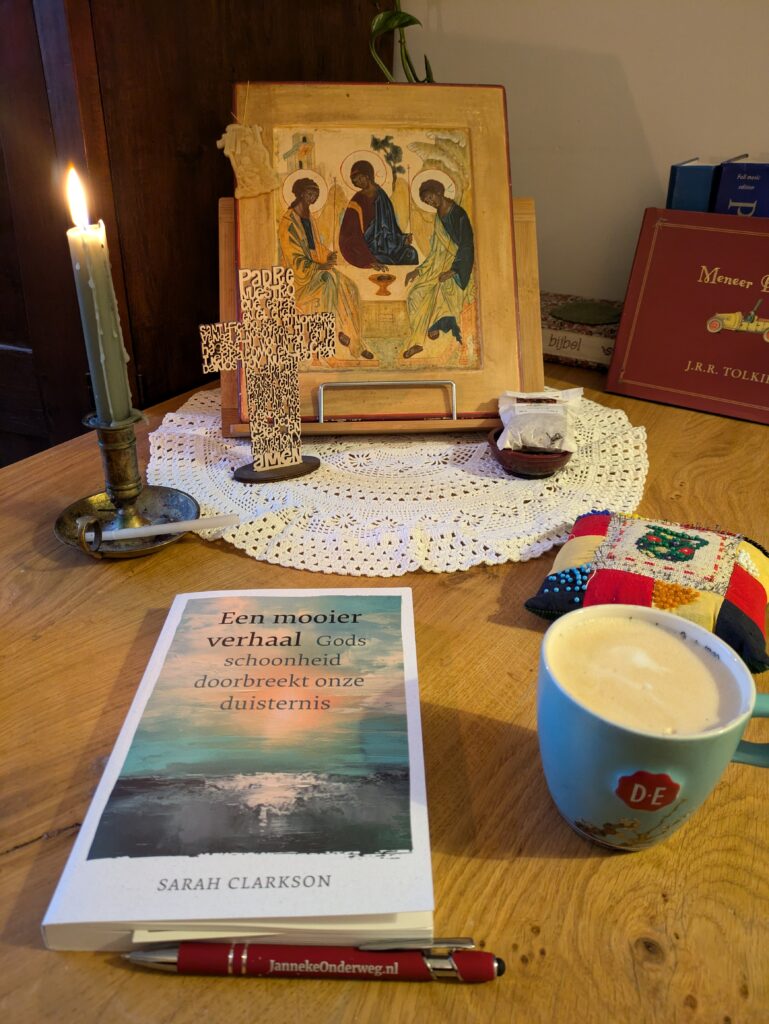
In this way, I try to consciously embrace Advent as a point on the horizon. It is not my natural nature. Is it age or discipline? Who knows. Over the years, I have learned a bit to let go of my action-driven nature – or am I just more practiced at channeling it?
In this way, I find peace in the garden. It is a place where peace and action go hand in hand. A year ago, I was able to rent a piece of land (120 square meters) on the edge of our village. If you have been in this online community for a while, you have certainly seen it pass by. I dove deep into books about ecological vegetable gardening, sowing schedules and drawings of monastery gardens. Humanity has been fed by what the earth produces since its beginning. We don’t have to reinvent the wheel, do we? Unfortunately, sometimes we do.
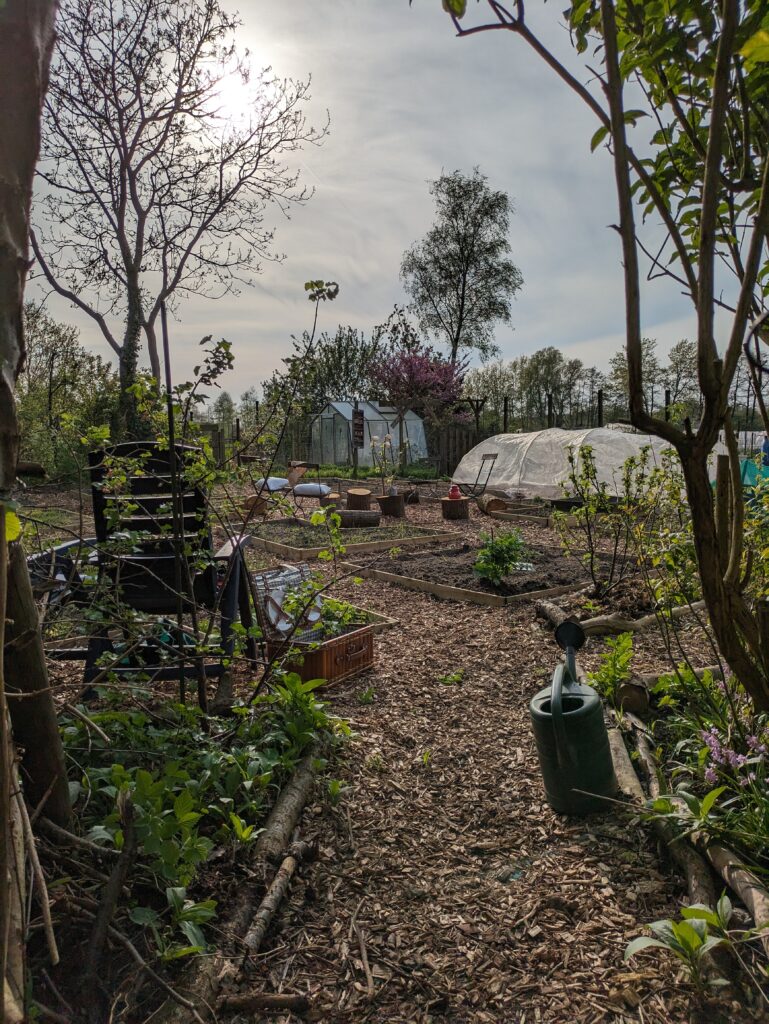
My grandparents had a vegetable garden for their large family. When grandpa retired and gave up his role as head teacher in the small town of Rijssen, the vegetable garden turned into an ornamental garden. It was a luxury they could afford: no more slaving and trotting and toiling in the mud. No more sowing, weeding, harvesting, preserving, hot pots or deep cellars full of canned goods. For him, stopping the cultivation of pupils went hand in hand with stopping the cultivation of seeds. It was the end of an era. The great progress of the sixties was that you could get vegetables from the greengrocer or the emerging supermarket, and with it ended the gardening craft that had been cultivated by our ancestors for centuries.
Finally, my sister Marleen designed a garden based on a 9th century model, as you can find in the open-air museum in Arnhem. The plot is divided into 16 parts, and in four years, you circulate your garden plan and maintain crop rotation. fun.
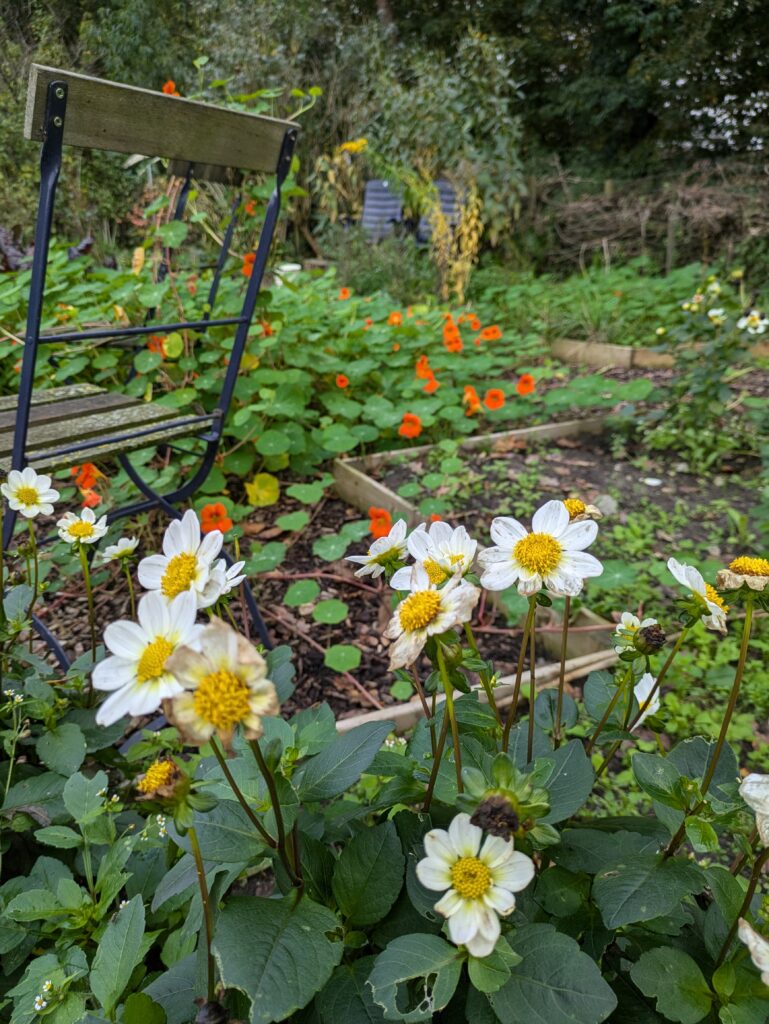
The first full year of gardening is over. The expanse black soil has transformed, with the help of others, into an organized proliferation of a great variety of herbs, flowers, vegetables, fruits, berries and trees. The fence is for small livestock, bees and beetles. The circle in the middle is for the guest. The central place where life is celebrated, suffered and shared. The tree in the middle points upwards, to the source and origin where everything comes from. Not everyone has the luxury of gardening or access to a piece of land. Still, I can recommend it to everyone. In years past, it was not an option whether you could do it or not. It was simply not a choice. “He who does not work shall not eat.” We just covered the garden again with leaves. Such a satisfying ritual!
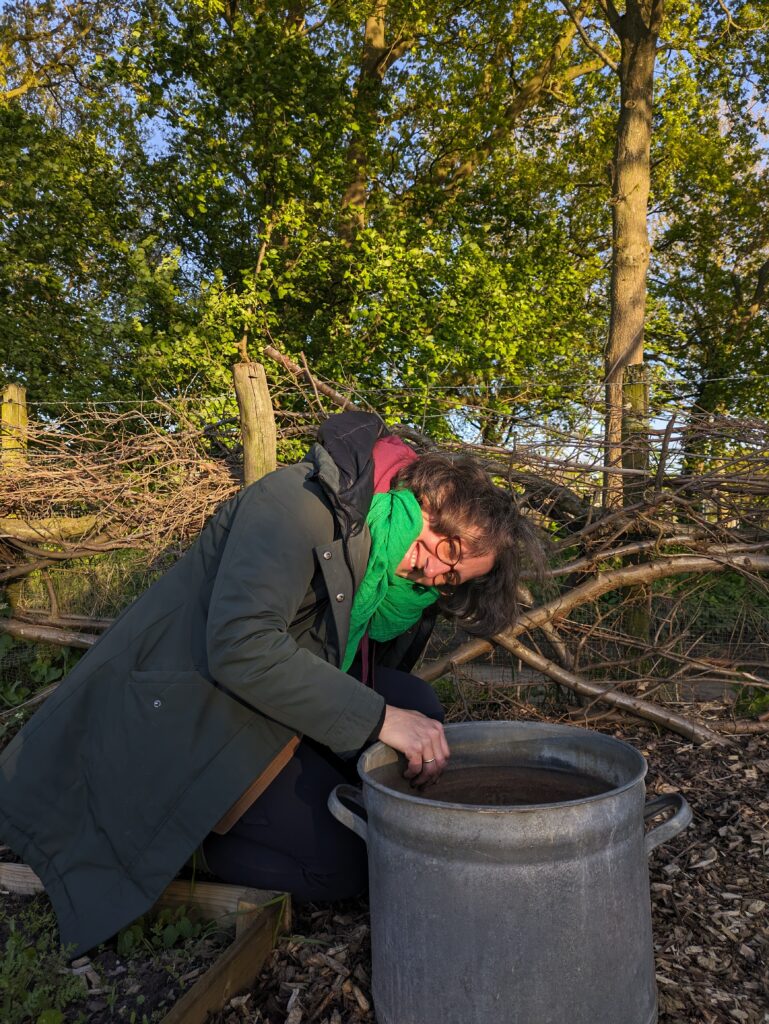
What surprised me most in the past year is how detached I lived from the earth in the years before. I always had a seed tray here and there on the windowsill, and wherever we lived, we left a hollyhock in the garden or between the tiles. But with your feet in the mud, you are connected to the earth on a deeper level. It gets under your skin. When you garden, the earth becomes your friend – your companion.

“Hope” means doing what is good, regardless of the outcome. “It is the trust that the good is good in itself and that it is good to contribute to it,” wrote Erik Borgman earlier this year in the Dutch Christian Newspaper. It is doing the good without seeing the outcome, because you are convinced of the good.
Sometimes the good seems so omnipresent, just between lines in the newspaper, the tiles in your garden or the rows on your piece of earth. Or in a supporting friend who helps you out in a way that you are unable to help yourself.
How did you see something of the good in the past year? I wish you all a grateful day of thanksgiving! – Kindes regards, Janneke
This article has been published in the Dutch Christian Newspaper: Het Nederlands Dagblad. dd 7-11-’24
Note: The poem at the beginning of this blog gets a place in my new workbook: HOLD ON. Develop your personal Rule of Life. Because I love it so much. Book Cover Reveal Soon And Very Soon!
